Guest Columns
Liberalism, genuine or decadent: moral crisis
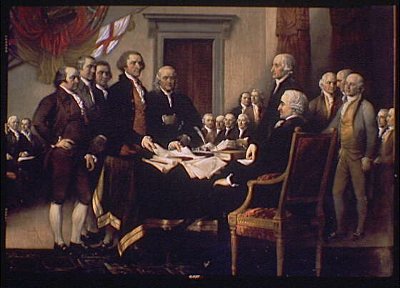
We all know that moral decay is permeating what is now called “post-Christian” Europe. Our best informed commentators know that this decay has been propagated for many decades by European universities steeped in the doctrine of moral relativism, which denies the existence of any moral norms or standards for judging what is good or bad, right or wrong. This moral relativism is now rampant in the United States, where anti-American academics are corrupting our youth and are creating a moral vacuum diametrically opposed to genuine American liberalism.
Genuine or classical liberalism made America the greatest nation on earth. This liberalism is rooted in America’s foundational document, the Declaration of Independence, the document that derives morality not from the changing wills and interests of minorities and majorities but from the eternal “Laws of Nature and of Nature’s God.”
That was normative liberalism, not normless or post-modern liberalism. Normative liberalism differs profoundly from the normless or pseudo liberalism that has long been brainwashing Americans, including Americans who have become our opinion makers and decision makers. Normless liberalism is devoid of rational and ethical constraints. Indeed, this pseudo-liberalism is a mental disorder. It the enormous increase of Americans suffering from anxiety, alienation, and related mental maladies, as discussed in my essay “The Malaise of Modern Psychology” (Journal of Psychology, Vol. 126, No. 2, March 1992), and more recently in An American Political Scientist in Israel (2010).
An example of normless liberalism: Israel today
I call this normless liberalism “Demophrenia,” because it is most prevalent in decayed liberal democracies, including Israel, which displays a high incidence of political schizophrenia. The negative symptoms of this schizophrenia is prominent among Israeli Prime Ministers, indicated as follows:
- Escapism [note that their policy of “territory or peace” is in fact a refusal to take Islam’s bellicose ideology seriously];
- Apathy [note their milquetoast attitude toward Arab butchery];
- Depersonalization [note their avoidance personal accountability];
- Stereotypic Behavior [note their fixation on the failed and fatal policy of “land for peace”];
- Lack of self-esteem [note how these PMs grovel before world opinion];
- Irrational emphasis on the efficacy of reason or persuasion against an Islamic ideology rooted in the primacy of force and coercion.
Having already enlarged on the mental disorder of liberalism-cum-demophrenia, let me reiterate some remarks in my book, American Exceptionalism (Israel-America Renaissance Institute 2012). What I am about to say should be pondered by Israeli leaders who, like their American counterparts, need to revive their ancient faith in the Bible of Israel, whose moral standards constitute the foundation of American greatness, nay, of American Exceptionalism.
How genuine liberalism worked in early America
Americans need to be reminded that liberal education in colonial America, which was profoundly influenced by the Bible of Israel, extolled human greatness and condemned human wickedness. It seems to have been forgotten that when ethical and intellectual monotheism reigned in America, freedom was not living as you like, and religion was not a mental straitjacket, which is why Alexis Tocqueville was struck by America’s harmonious combination of political and religious freedom.
This happy state of affairs produced liberal gentlemen who could be friends despite their differences. They could be friends because what gentlemen have in common is more significant than their differences. And what was more significant to eighteenth-century Americans than the ethical and intellectual monotheism of the Bible of Israel?
It was this monotheism that nurtured the civility manifested in the debates of the Constitutional Convention. We see such civility in the Declaration of Independence, which speaks of “a decent respect to the opinions of mankind.” Evident here is the language of gentlemen and of classical liberalism.
The limits of tolerance – a case study
The religious tolerance exemplified by America’s monotheistic society did not extend tolerance to intolerance – certainly not one that threatens public order or the laws of the Constitution [like Islam’s Sharia].
Nor did America’s religious tolerance preclude criticism of any religion or pseudo-religious creed. Jefferson spoke of “false religions.” Far more significant, ponder the case of People v. Ruggles (8 Johns, R. 290 N.Y. 1811), in which New York’s Chief Justice Chancellor James Kent, the great commentator on American law, delivered the opinion of the Court:
The offence charged is that the defendant did wickedly, maliciously, and blasphemously utter, in the presence and hearing of divers good and Christian people, these … scandalous, malicious, wicked and blasphemous words, to wit, “Jesus Christ was a bastard, and his mother must be a whore;” and the single question is, whether this be a public offence by the law of the land.…Such words, uttered with such a disposition, were an offence at common law. [Cases cited, wherein] the court were careful to say, that they did not intend to include disputes between learned men upon particular controverter points….
Such offences have always been considered independent of any religious establishment or the rights of the church. They are treated as affecting the essential interests of civil society… We stand equally in need, now as formerly, of all the moral discipline, and of those principles of virtue, which help to bind society together. The people of this state, in common with the people of this country, profess the general doctrines of Christianity, as the rule of their faith and practice; and to scandalize the author of these doctrines is not only, in a religious point of view, extremely impious, but, even in respect to the obligations due to society, is a gross violation of decency and good order….
The free, equal, and undisturbed, enjoyment of religious opinion, whatever it may be, and free and decent discussions on any religious subject, is granted and secured; but to revile, with malicious and blasphemous contempt, the religion professed by almost the whole community, is an abuse of that right. Nor are we bound, by any expressions in the Constitution, as some have strangely supposed, either not to punish at all, or to punish indiscriminately the like attacks upon the religion of Mahomet or of the grand Lama; and for this plain reason, that the case assumes that we are a Christian people, and the morality of the country is deeply engrafted upon Christianity, and not upon the doctrines or worship of those impostors.… (emphasis added).
Though the constitution has discarded religious establishments, it does not forbid judicial cognizance of those offences against religion and morality which have no reference to any such establishment, or to any particular form of government, but are punishable because they strike at the root of moral obligation, and weaken the security of the social ties.
A unanimous court agreed with Chancellor Kent’s ruling. Moreover, Kent’s position was later affirmed by the United States Supreme Court in the case of Vidal v. Girard’s Executors, 43 U.S. 2 How. 127 (1844). Justice Joseph Story, esteemed as a “father of American Jurisprudence” and appointed to the Supreme Court by James Madison, delivered the court’s unanimous opinion. He said, in part: “Christianity … is not to be maliciously and openly reviled and blasphemed against, to the annoyance of believers or the injury of the public.” Nor is this all. Justice Story’s position on the First Amendment virtually extols Christianity. In his celebrated Commentary on Constitution of the United States (1840), he writes:
We are not to attribute this prohibition of a national religious establishment [in the First Amendment] to an indifference to religion in general, and especially to Christianity (which none could hold in more reverence than the framers of the Constitution)…. Probably, at the time of the adoption of the Constitution, and of the [first] Amendment to it now under consideration, the general, if not the universal, sentiment in America was, that Christianity ought to receive encouragement from the State so far as was not incompatible with the private rights of conscience and the freedom of religious worship. Any attempt to level all religions, and to make it a matter of state policy to hold all in utter indifference, would have created universal disapprobation, if not universal indignation.
To substantiate the arguments of Chancellor Kent and Justice Story, let us mention Fisher Ames (1758-1808), a Harvard graduate. Mr. Ames, who was elected president of Harvard in 1804 but declined the position because of ill-health, is regarded as one of America’s “forgotten founding fathers.” Ames was an outspoken supporter of the Bible’s central role in all of education.
As a first-session congressman he said, “Should not the Bible regain the place it once held as a schoolbook? Its morals are pure, its examples are captivating and noble.” It was Fisher Ames who suggested the wording of the First Amendment, which was adopted by the House of Representatives: “Congress shall make no law establishing religion, or to prevent the free exercise thereof, or to infringe the rights of conscience.” In its final form the first amendment to the United States Constitution reads, “Congress shall make no law respecting an establishment of religion, or prohibiting the free exercise thereof; or abridging the freedom of speech, or of the press; or the right of the people peaceably to assemble, and to petition the government for a redress of grievances.”
What does the First Amendment actually forbid?
Before proceeding, consider only the religious clause of the First Amendment: “Congress shall make no law respecting an establishment of religion, or prohibiting the free exercise thereof.” We see here that Congress – hence the national government – is prohibited from establishing a national religion. It is not prohibited from enacting laws affecting religion, so long as those laws do not prevent the “free exercise thereof.”
To the contrary, it is the constitutional duty of Congress to protect the free exercise of religion. Nothing in the First Amendment refers to “separation of church and state.” Neither the word “separation” nor the word “church” nor the word “state” appears in the First Amendment. The Founding Fathers, including Jefferson, fully understood that the purpose of the First Amendment was to protect rather than prevent public religious expression, as is clearly evident in the 200-year chronology of religious affirmations enumerated [and elsewhere documented].
That chronology makes nonsense of the “separation of church and state” dogma intoned by secularists. It was one of many instances of judicial despotism to prohibit a student from reading his Bible during his free time or even to open the Bible in school. (Gerki v. Platzer, 1989). As outrageous, it is now unconstitutional for a classroom library to contain books that deal with Christianity, or for a teacher to be seen with a personal copy of the Bible at school. (Roberts v. Madigan 1990).
In Jefferson’s famous letter to the Danbury Baptists of January 1, 1802, in which he thanked them for their “kind prayers” upon his election to the presidency, assured them that the free exercise of their religion was an inalienable right, there was a “wall of separation between church and state” that would prevent the (new) government from interfering with or hindering the free exercise of their religious activities. It was not until the mid-twentieth century that Jefferson’s “wall of separation” phrase was tendentiously extracted from his letter – by no means a dictum of any court – to strike down as unconstitutional any public act or endorsement of any written or spoken word, or even silent meditation, that could be construed to have religious—but especially Christian—significance!
What is more, the term “religion” has been so debased that it includes not only atheism and satanic cults, but any personal belief or lifestyle. This makes a mockery of the words and deeds of the statesmen who exalted Christianity since the days of George Washington and who traced the blessings of America to that religion.
Unless this degradation is arrested, America will become, like Europe, a post-Christian country. What is more, the resulting spiritual vacuum will be filled by nihilism and the totalitarianism of Islam propagated by a thousand mosques across the land. This would be the deadly consequences of replacing normative or classical liberalism with normless or contemporary relativism—the reigning mental disorder of our time.□
-
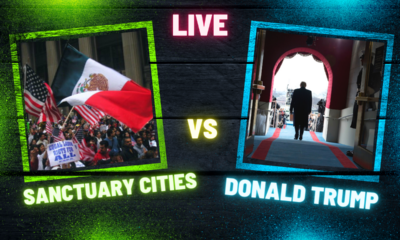
 Civilization4 days ago
Civilization4 days agoThe Theory and Practice of Sanctuary Cities and States
-

 Civilization5 days ago
Civilization5 days agoAmerica Can’t Secure Its Future on Imported Minerals
-

 Civilization5 days ago
Civilization5 days agoCompetition Coming for the SAT, ACT, AP, and International Baccalaureate
-

 Civilization2 days ago
Civilization2 days agoThe Minnesota Insurrection
-
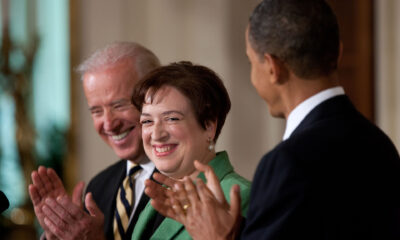
 Civilization3 days ago
Civilization3 days agoSupreme Court Orders CA Dems To Justify Prop 50 Maps
-

 Education2 days ago
Education2 days agoFree Speech Isn’t Free and It Cost Charlie Kirk Everything
-

 Civilization2 days ago
Civilization2 days agoThe Campaign Against ICE Is All About Open Borders
-

 Executive1 day ago
Executive1 day agoWaste of the Day: U.S.-Funded International Groups Don’t Have to Report Fraud

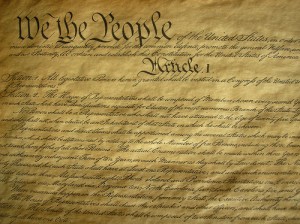

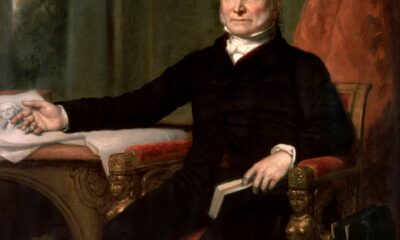

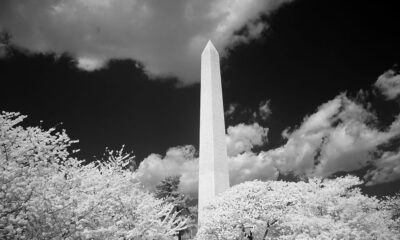







Ron Chronicle liked this on Facebook.
Matt Clark liked this on Facebook.
Tony L Sundberg liked this on Facebook.
Nicks N Raygun liked this on Facebook.